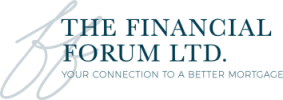Getting a mortgage can be a very confusing process. There is a lot of paperwork to sign, documents to read and procedures to be followed. However, it is important to simplify and to ensure one does not lose track of the important things to know. Although getting a mortgage can be a confusing process, there are three terms that every mortgage holder should know to better understand what he is she is getting into.
Going into a mortgage knowing just a few facts will help you immensely in understanding what type of commitment you are getting into.
Mortgage Term
The first term you should understand is, amazingly, the word “term”. Term refers to the length of the contract you will have with the lender. It should not be confused with the amortization period. The term of the mortgage refers to the length of time you are committed to the lender under the terms, rate and conditions of the mortgage.
Once the mortgage term expires, the remaining balance of the mortgage will need to be renewed, refinanced or paid in full. Mortgage terms in Canada carry mortgage terms usually ranging from 6 months to 10 years.
The lender and the mortgagor are legally obligated to the contractual terms of the mortgage through to the expiry date.
Amortization Period
The amortization period, on the other hand, is the length of time it will take you to pay off your entire mortgage to a zero balance. The shorter the amortization period, the less interest you will pay. However, a typical amortization can be confusing. For example, if your amortization period is 25 years, technically, if you made the same monthly payment for 25 years and made no additional payments against your mortgage, you would have a zero balance. However, one cannot predict the interest rate at the end of the term, which may affect your amortization period at renewal. Also, other factors come in to play such as pre-payments and increasing your payment frequency. These factors may force you to amend the amortization period at the term expiry which could have a positive or negative affect on your amortization.
The longer the amortization, the lower your monthly payment will be (and the more interest the lender makes). Generally speaking, you should arrange the shortest amortization period you can comfortably afford – you’ll save potentially thousands of dollars in interest by keeping the length of the amortization as short as you can.
Interest Rate
Next, understand the interest rate on your mortgage and how it is calculated. The interest rate refers to the amount of interest charges you will pay for the money you are borrowing, expressed as a decimal – such as 3.2 for 3.2%. Is it fixed or variable? In other words, is it the same through the life of the mortgage or does it change according to the prime interest rate?
Most mortgages in Canada are “compounded semi-annually, not in advance”. What does this mean? Simply, it means the interest is calculated twice a year and added on to the principal owing, then payments are subtracted. “Not in advance” refers to the payment being collected at the end of a time period (end of month if you are paying monthly). So, if you are making a payment on July 1st, it would be for the interest incurred for the month of June. In other words, it is the opposite of renting or leasing where the payment is for the month following.
Some mortgages, variable rate mortgages and most lines of credit are compounded monthly rather than semi-annually.
Closing Costs
Finally, understand what closing costs are and how they are going to affect your purchase price or refinancing. Most often, you are going to be responsible for coming up with these closing costs out of your own pocket, especially in a purchase situation. Closing costs consists of things such as appraisals, legal fees, land transfer tax, etc. Be a smart and savvy consumer, if you see a fee that you don’t understand or doesn’t seem right – speak up! .
Understanding these terms can help make you a more informed home buyer and help you find the mortgage that is right for you.
Have any questions, need any advice? Visit us at www.thefinancialforum.ca. Email us at mortgages@thefinancialforum.ca. Call us at (905) 265-0246.
VERICO The Financial Forum Ltd.
“Your Connection To A Better Mortgage”
Together, We Make Mortgages Easy!





